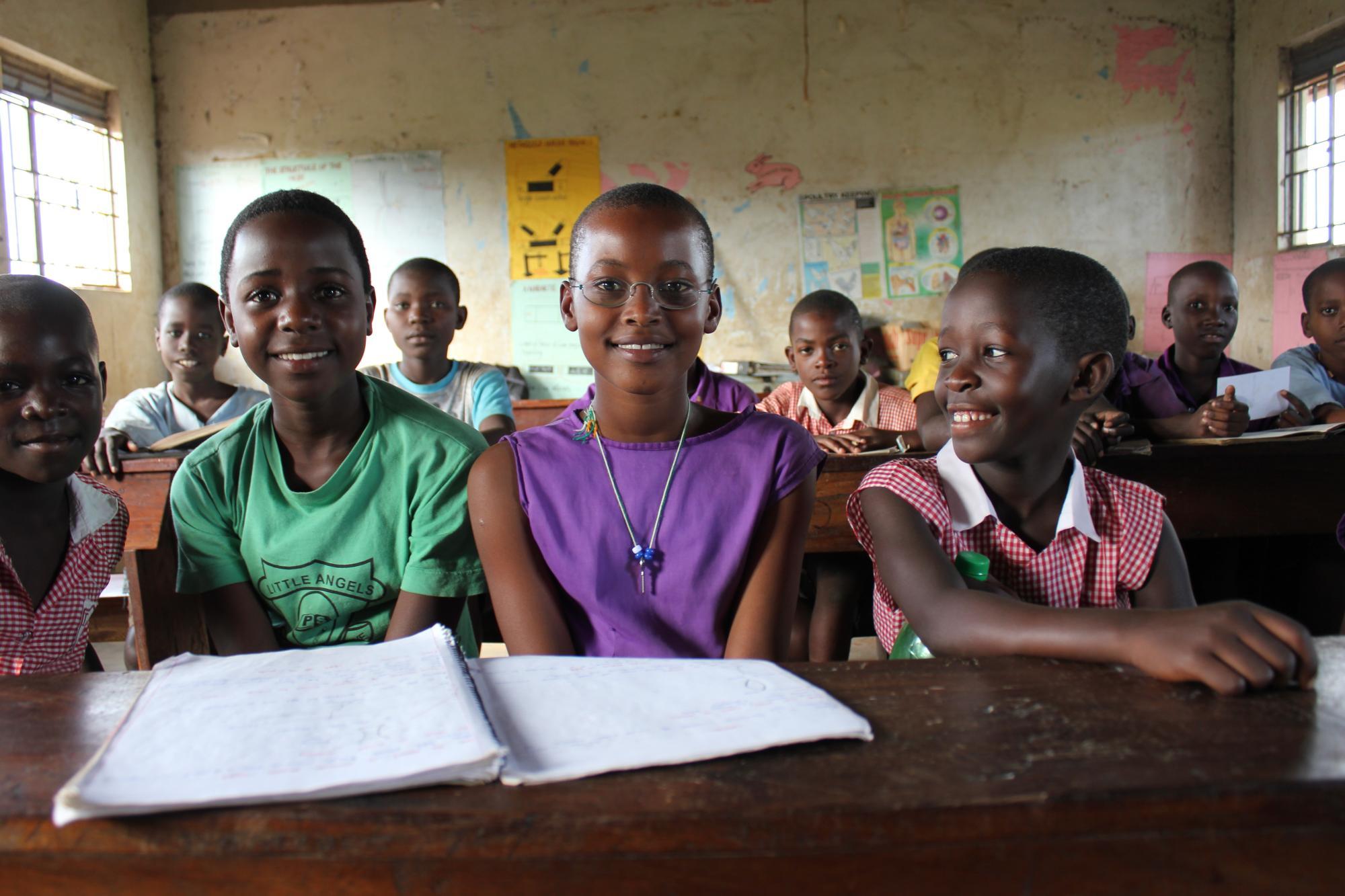Small idea, big impact
A conversation with Martin Aufmuth, founder of EinDollarBrille
Over 950 million people worldwide do not have access to glasses, even though they desperately need them. This fact stayed with Martin Aufmuth. After realizing the global scale of the problem, he founded the EinDollarBrille association in 2012. Today, he discusses his trips to Burkina Faso and Malawi, his emotional encounters, and the importance of believing in an idea.


Martin, your prescription values are -3 and -4 diopters. What would have become of you if you had been born with these values in Burkina Faso??
Martin Aufmuth: Burkina Faso is one of the poorest countries in Africa and has been plagued by terrorism for years. When our employees visit villages there, they meet people who live very traditional lives. Many of them don’t even know that glasses exist. Without glasses, I probably wouldn’t have been able to continue going to school because my grades would have suffered. The same is true for many children there.
The GoodVision team then travels to villages to sell glasses after conducting vision tests. Why aren’t they given away for free?
We sell glasses for two to three times the local daily wage. For example, the daily wage in India is around four euros. The material cost per pair of glasses is less than one dollar for the wire, lenses, and heat-shrink tubing. Local manufacturing costs add another two dollars or so. The high cost of traveling to villages, maintaining teams on site, and using robust vehicles to reach regions more than 1,000 km away in the Bolivian highlands, for example, is what makes the glasses expensive. People in program countries pay their share, and we finance the rest through donations.

It’s actually unfair. Here, you can buy reading glasses for a very low price at the supermarket if you have poor eyesight.
Yes, that’s what amazed me so much. At the time, I was reading Paul Polak’s book “Out of Poverty”, which discusses how millions of people need glasses but don’t have them. That same day, I saw glasses in a dollar store and wondered: Why aren’t they available in Burkina Faso, Malawi, or Peru? If there are glasses or opticians in some of these regions, why are they so expensive in countries where people have so little?
It was clear to you that you had to do something. So, in the summer of 2012, you founded the EinDollarBrille association.
Yes, exactly. I always felt that something had to be done. When I brought it up with my wife again, she said, “Then do something about it.” That’s how it started.
Why glasses in particular?
Glasses like these can have a huge impact. You can achieve a lot with very little money. For example, with just a few dollars, people can go back to work and earn a year’s salary, and children can learn and have a new future..
You travel a lot in the program countries and see a lot of joy of life, but you also experience a lot of poverty and suffering.
Malawi, in particular, sticks in my mind. Many people there rely solely on agriculture for income. Corn is their staple food, but it often runs out about two months before the next harvest. At that point, people only eat once a day. Later, they gather roots or eat mice to survive. Climate change will only exacerbate this situation in the future.

How can glasses help?
An 80-year-old farmer in Malawi told me that he hadn’t been able to see properly while working in the fields for a long time. He was solely responsible for supporting himself because his five children had died of HIV and malaria. If he misplants one in ten corn seeds due to his poor eyesight, he will go hungry for three months—too long for an 80-year-old. A simple pair of glasses can therefore save lives. I am certain that we have saved many with our glasses.
How do you feel when you experience situations like this firsthand? How does it affect you?
When I’m on the road, I immerse myself in my work. I love observing and talking to lots of people. This also sparks new ideas on how we can improve. When I return, I have a hard time settling back into the orderly, somewhat distant lifestyle in Germany for the first few weeks.
Living conditions and the political situation directly impact the work carried out on the ground. For instance, it’s difficult for someone who has never been to Burkina Faso to imagine how challenging and risky it is to distribute glasses and perform eye exams there.
Yes, in this West African country, we had to suspend the eye camps in rural areas for the time being due to the high risk of terrorism. However, our country director Thierry Nassouri is now planning a pilot project with the government to provide short training courses in optometry to local nursing staff. They will then enter the data from the eye tests into a mobile app developed by us, which will enable us to check the quality of the eye tests, among other things.
You and your team always find a way forward, even when others give up.
I believe that most people greatly underestimate their abilities and potential to make a difference. We can often accomplish more than we realize. It’s important to believe in an idea and pursue it relentlessly. Then, you must find people who share your enthusiasm and want to join you. Once you take the first, most difficult step, many things become easier.
Martin Aufmuth’s story impressively demonstrates how a small idea can become a global movement if pursued with courage and determination.


